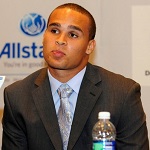 When student athletes at Northwestern University in Evanston, Illinois first publicly acclaimed their plan to unionize, the University countered with ‘Players (student athletes) are not employees essentially because college athletics is part of the overall educational experience.
When student athletes at Northwestern University in Evanston, Illinois first publicly acclaimed their plan to unionize, the University countered with ‘Players (student athletes) are not employees essentially because college athletics is part of the overall educational experience.
However, if we were to ask the numerous students performing non-athletic jobs for the university for pay, it’s doubtful that they would call raking leaves or painting woodwork to be ‘part of their overall educational experience’ at college.
The universities around the country, especially the private ones, have been walking on thin ice for some time now over this issue and the scene is heating up quickly now since the petition by the CAPA (College Athletes Protection Association) to unionize. The issues at hand can no longer be avoided or denied.
The official filing was done in front of the National Labor Relations Board in Chicago by Northwestern quarterback Kain Colter along with other student athletes from the university.
Participating in college athletics can be a rewarding and educational experience for a young athlete…..a true chance to grow and expand their horizons far beyond the playing field. But, playing on a big name college team can also be very taxing on the student who must do his or her best to balance a demanding practice and game schedule while keeping up with class work and perhaps sneaking in a few hours for some kind of social life.
The founder of the CAPA, Ramogi Huma, called Colter the movement’s star witness in this bold move which could turn out to be a major game-changer in NCAA athletics. Huma told the press before the meeting, “This is the most important hearing, I believe, in the history of college sports, at least in modern college sports. I don’t think there’s ever been a bigger platform with a chance to change the nature of protections provided to (college) players.”
One of the key issues discussed at the NLRB hearing was if college players receiving a free education have the right to collectively bargain their working conditions. First of all they must define ‘free education’. If you work for it is it still free? What about if you represent the school on the playing field in a sport which bring in large sums of money to the university?
This case is not going away but it is not going to be resolved quickly either. We are in for a long drawn out battle which will only be settled by compromise and compassion on both sides.




